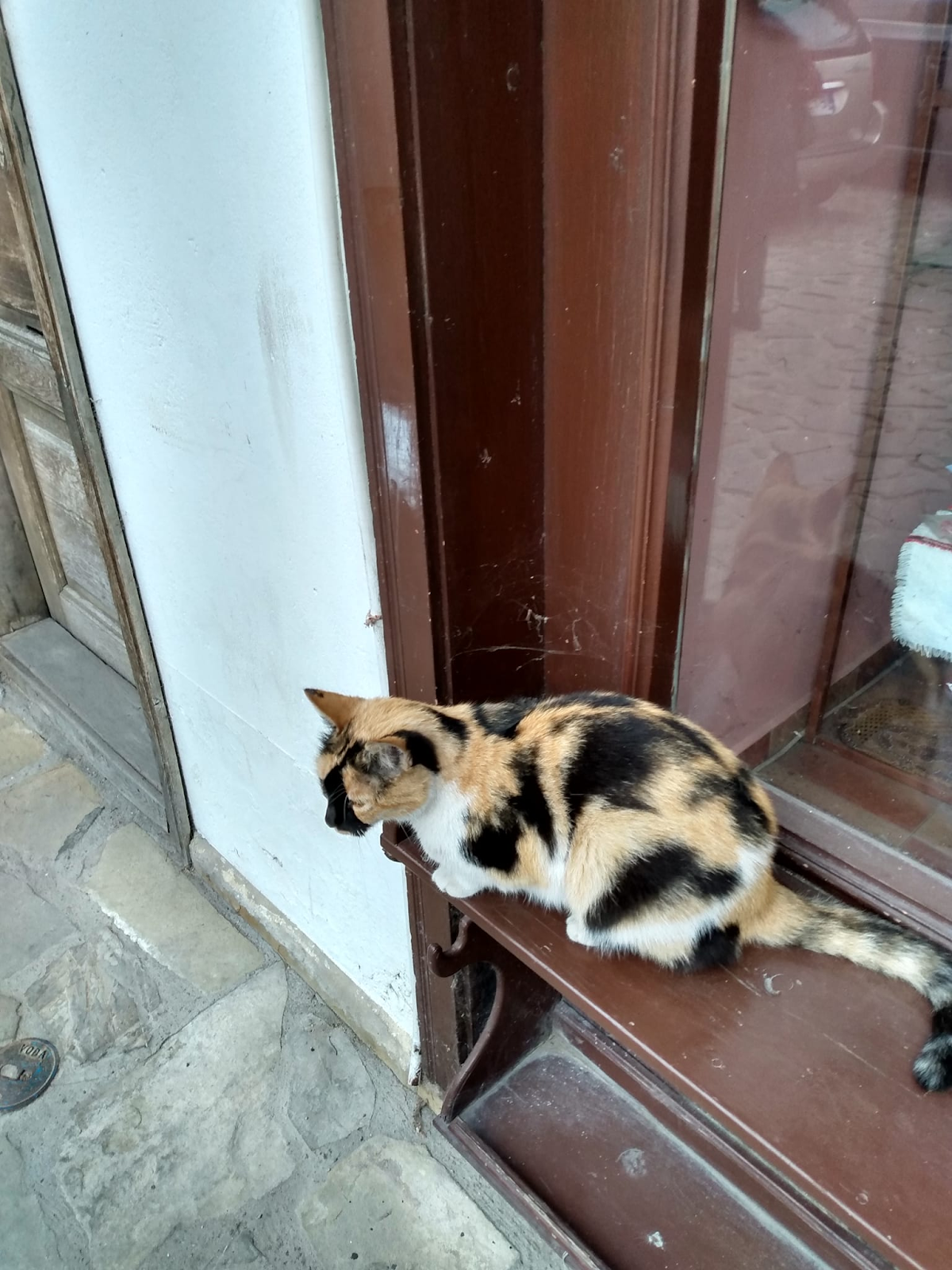Louise Fresco
The best way to get to know a country is by eating the local cuisine. This was one of the best dishes I had in Bulgaria. It is a pork stew with prune and wine gravy in a bed of mashed potatoes. The idea of prunes as an ingredient in gravy didn't sound good at first but this was absolutely delicious!

This work is licensed under a Creative Commons Attribution-Noncommercial-No Derivative Works 3.0 United States License.
This is a photo of homemade yogurt served with banitsa: Yogurt contains the bacteria lactobacillus bulgaricus, among other bacteria friendly to the digestive system. The best yogurt in the world is made here. Banitsa is a traditional Bulgarian pastry made with sirene (cheese similar to feta) eggs, phyllo dough, butter, and eggs. It is usually eaten for breakfast.
In Plovdiv and Varna there were colorful signs everywhere, some in Latin alphabet and some in Cyrillic:
If you're going to visit a beach town in Bulgaria, Varna is the place to go. It has a long pedestrian zone that leads down to the beach. In mid-September it was a little breezy but pleasant, and not overcrowded with tourists. The water is warm enough for swimming. I passed because it was windy and I get cold easily.
Varna, this time in Cyrillic letters. I don't know why the bike was there. People rode bikes and scooters up and down the pedestrian zone; there were a few near misses. I survived.
A colorful sign in Plovdiv: in 2019, Plovdiv was the European Capital of Culture. Notice the stairs in the background. Plovdiv was built on seven hills, and with all that hilliness, stairs are unavoidable.
Someone painted this on a public toilet building in Sofia. It's the toilet monster! The artist had a sense of humor. Look at the sign by the men's WC. He looks like he's having trouble holding it....
This mural in Veliko Tarnovo. commemorated an event that happened in 1835. Looks like something that had to do with a revolutionary movement. The lion, symbol of Bulgaria, is at the top center, and underneath are a gun and a dagger.
My phone battery was starting to fail in Bulgaria, so I wasn't able to take videos. The battery couldn't be replaced, either, like the older phones so I missed out on some opportunities to take videos of the dancers; fortunately, I was able to take pictures.
There was a folk dance group that came to the hotel in Kazanlak. This photo is of two young women dancing a rachenitsa: The group performed other dances as well: Shopska Rachenitsa, Graovsko Horo, Daichovo, and Pravo Trakiisko Horo (the audience was invited to dance the Pravo).
Below is a video of a rachenitsa from Thrace (south central Bulgaria). Rachenitsa is the national dance of Bulgaria. Again, not my video; it is one of series on learning folk dances.
If you enjoyed this you may also like:
The Alien Diaries Visits Bulgaria Part Two (links to Part One)

This work is licensed under a Creative Commons Attribution-Noncommercial-No Derivative Works 3.0 United States License.



.jpg)















